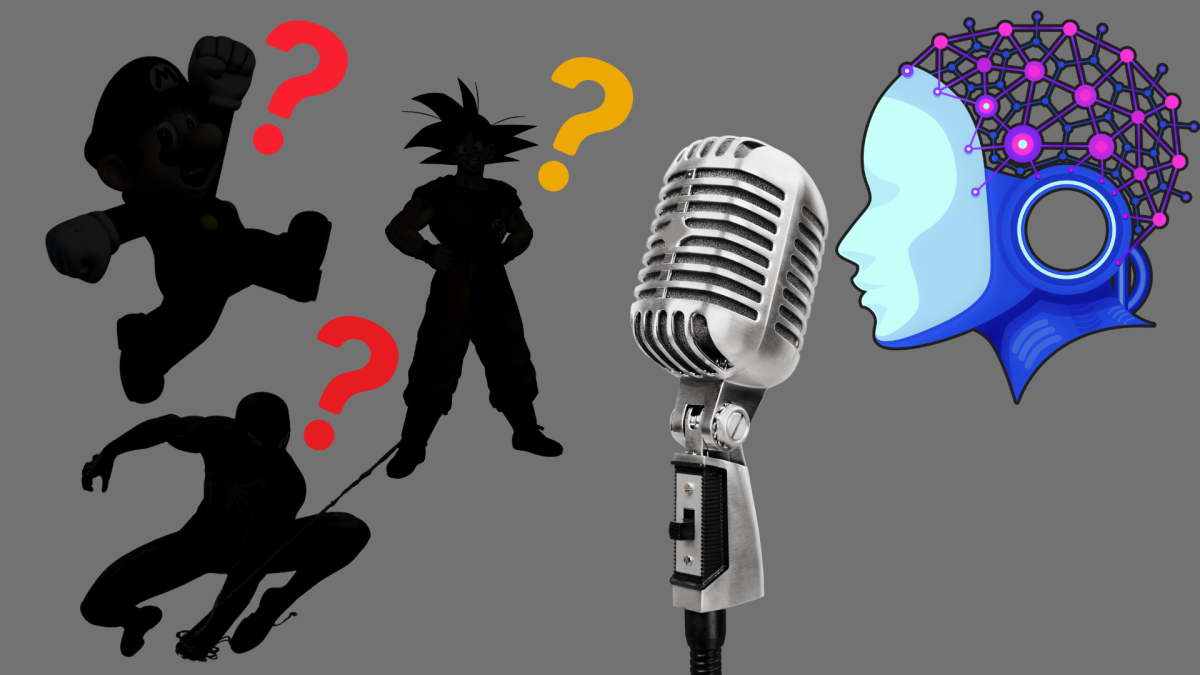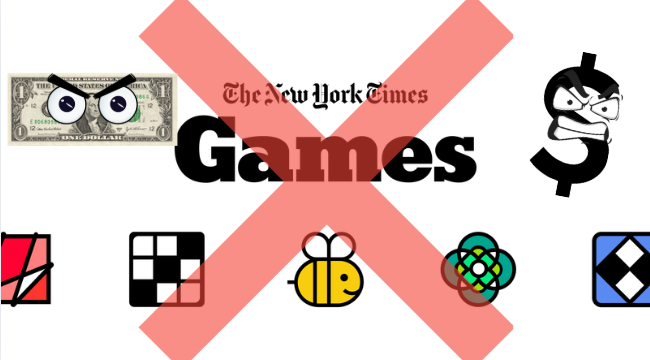Artificial intelligence is everywhere. It’s doing calculations for you in your computers, it’s plagiarizing essays for students in your school, and, more recently, it’s flooding the art communities in every medium possible.
This has gotten to the point that we can no longer even tell what’s real anymore. Generative AI has come a long way from Will Smith shoving his face full of spaghetti and Dwayne “The Rock” Johnson eating stones. It’s grown and adapted so much that if you don’t know what signs to look for, it’s pretty easy to miss the clues that an image was AI-generated. That’s why your grandma’s Facebook feed is filled with singing cats and little boys in desert landscapes next to their castles or sailboats, both made entirely out of plastic bottles. But AI-generated images deceiving the elderly isn’t hurting anyone, even if it is a little mean-spirited.
Let’s talk about where it is hurting people: artists—people who make a living by being creative and using their talents, skills, and knowledge to bring beautiful, magical, brilliant pieces of media into the world. With AI, big corporations have realized they too can make “art,” however lacking the heart, soul, and whimsy that actual, human-made creations possess.
Recently, those same big corporations realized that if all of them just use computers to make low-quality recycled images, then they don’t have to pay artists anymore.
This is what caused the SAG-AFTRA strike back in 2023. In it, screen, television, and radio artists alike, represented by the union, all refused to work until they were given proper recognition and an equitable truce was reached, or so we thought. Netflix has recently employed the use of AI-assisted dubbing, in which they use AI to morph the mouths of the actors on screen so it looks like they are speaking the language chosen. But we recently learned that the mouth morphing abominations aren’t the only way Netflix aims to use AI.
A recent Netflix job posting described the responsibilities of a new position they’re hiring for. It is described as “an experienced Research Scientist with established track records in generative speech technologies to develop algorithms that power high quality localization at scale. In this rare opportunity, [employed persons] will have the chance to conduct cutting-edge Machine Learning research to help enhance localization and global entertainment at Netflix.” The important words there? “Generative speech technologies.” It looks like Netflix is aiming to use AI to handle dubbing of their provided anime and content originating from other parts of the world.
Netflix is not the only one doing it either; Amazon Prime is on its way too. As of March 5, Amazon Prime has begun their own new program that aims to give AI dubbing to licensed movies and series. But if you think voice actors are going to sit idly by as AI steals their jobs, you’re dead wrong.
In March, Neil Newbon, best known for his role as Astarion in Baldur’s Gate 3, assembled a group called the Pixel Pack. The Pixel Pack is a group of famous video game voice actors who have banded together to fight for video game voice actors’ rights and show that they won’t yield to AI replacing them. As of publishing, the group consists of:
Abubakar Salim (Assassin’s Creed, Stray Gods, House of the Dragon)
Ace Ruele (Creature Bionics Film & Games)
Alix Wilton Regan (Perfect Dark, Assassin’s Creed, Cyberpunk 2077, Dragon Age)
Andi Norris (Resident Evil Village, Stranger Things VR)
Anjali Bhimani (Overwatch, Apex Legends)
Ben Starr (Final Fantasy XVI, Warframe)
Bryan Dechart (Detroit Become Human, Cyberpunk 2077)
David Menkin (Lego Star Wars, Final Fantasy XVI, Assassin’s Creed: Valhalla)
Devora Wilde (Baldur’s Gate 3, Space Marine 2)
Díana Bermudez (Baldur’s Gate 3, Marvel’s “Moon Knight”)
Doug Cockle (Baldur’s Gate 3, The Witcher Series)
Erika Ishii (Dragon Age: The Veilguard, Apex Legends)
Fred Tatasciore (Marvel Rivals, Batman: Arkham Shadow, Star Wars)
Jane Perry (Cyberpunk 2077, Mass Effect, Lego Star Wars,)
Jennifer English (Baldur’s Gate 3, Elden Ring)
Jennifer Hale (Mass Effect, Metal Gear Solid, Star Wars, Ratchet and Clank: Rift Apart)
Joseph Balderrama (It Takes Two, Alan Wake 2, Dragon Age: The Veilguard)
Luisa Guerreiro (Assassin’s Creed IV: Black Flag, Baldur’s Gate 3, Deliver Us Mars)
Maggie Robertson (Resident Evil Village, Baldur’s Gate 3)
Matt Mercer (Final Fantasy XI, Dragon Age: The Veilguard, Baldur’s Gate 3, Critical Role)
Melina Juergens (Hellblade: Senua’s Sacrifice, Senua’s Saga: Hellblade II)
Melanie Liburd (Alan Wake 2)
Neil Newbon (Baldur’s Gate 3, Resident Evil Village, Detroit Become Human)
Nick Apostolides (Resident Evil 2 Remake, Resident Evil 4 Remake)
Noshir Dalal (Red Dead Redemption 2, Horizon Forbidden West, League of Legends)
Roger Clark (Red Dead Redemption 2)
Sam Lake (Alan Wake 2)
Samantha Béart (The Excavation of Hob’s Barrow, Baldur’s Gate 3)
Troy Baker (The Last of Us, Marvel Rivals, Death Stranding)
Yuri Lowenthal (Spider-Man, Spider-Man 2)
In an interview for RadioTimes at the BAFTA Game Awards, Neil Newbon addressed why the emphasis of Pixel Pack is on video game voice actors: “We are not paid the same. That is a huge difference, I would say, between TV, film and the rest of it, we’re not paid nearly the same. Also, AI performance is not as big a threat in film and TV, I would say, or theatre for that matter.”
So what can we do? Support your favorite voice actors and keep a keen eye for when a project uses artificial intelligence in place of artists. Voice actors are trying to do their jobs, and their jobs help entertain and entrance us as the viewers. So, if you like art, animation, anime, TV, film, and/or video games, join the fight against AI on the side of the artists.









